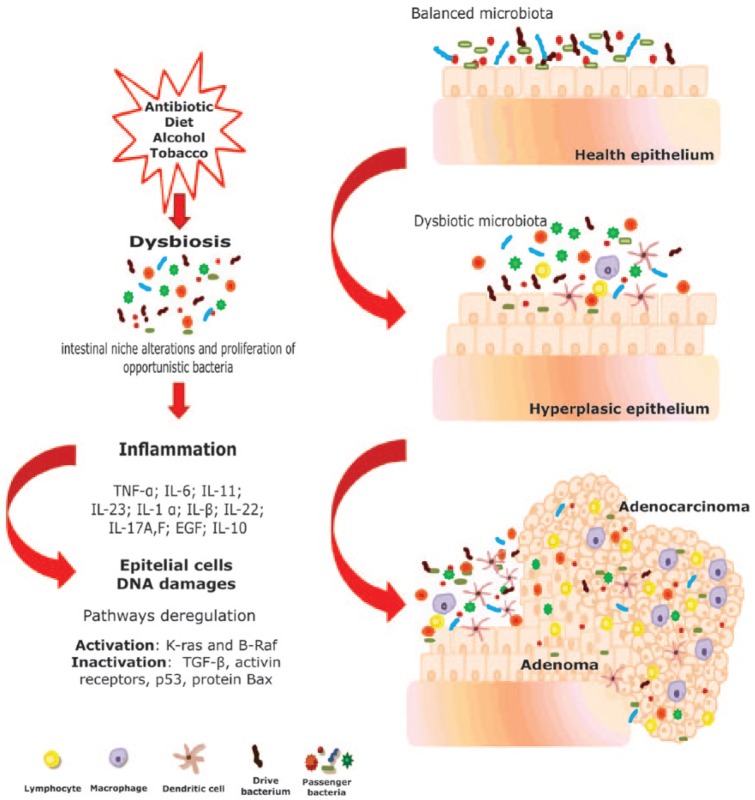Figure 1.
‘Adenoma–carcinoma’ progression following the model proposed by Fearon and Vogelstein17 incorporating the ‘bacterial driver-passenger’ model of Tjalsma and colleagues. In this situation, the adenoma–carcinoma progression occurs because of the genomic instability (accumulating genetic and epigenetic mutations), caused by changes in gut microbiota. These changes initiate with the presence of a ‘drive bacteria’ which drives the epithelial DNA damage and contributes to colorectal cancer (CRC) promotion. Then the tumorigenesis induces intestinal niche alterations, which favor the proliferation of opportunistic bacteria (bacterial passengers). EGF, epidermal growth factor; IL, interleukin; K-ras, Kirsten rat sarcoma viral oncogene homolog; TGF, transforming growth factor; TNF, tumor necrosis factor.

